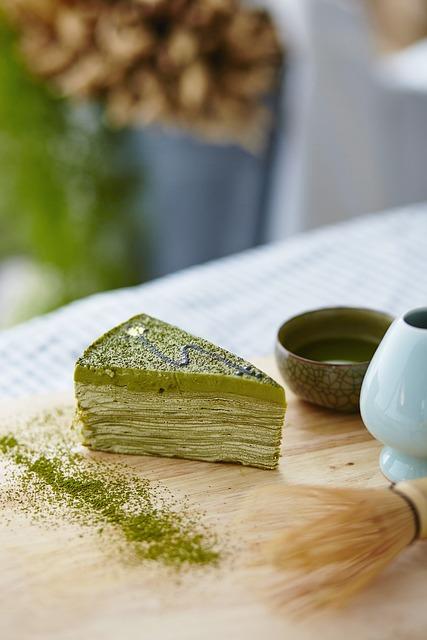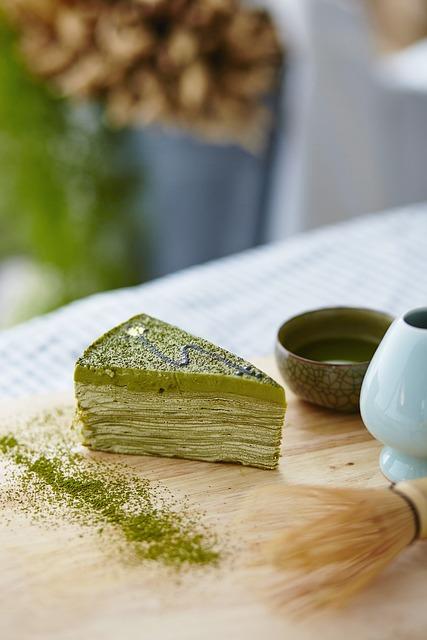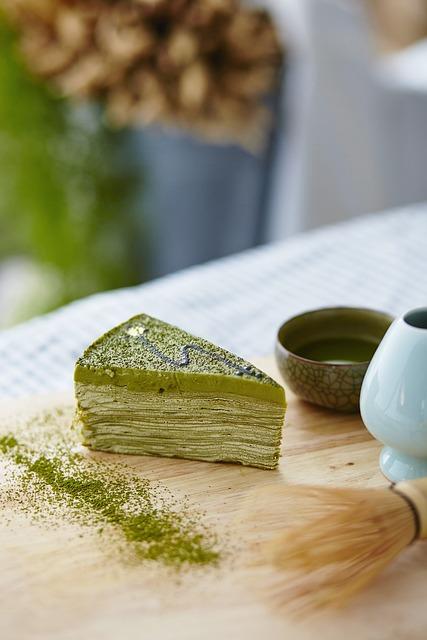Anxiety Aide: Can Kratom Cause Anxiety Relief?
Anxiety, a common mental health condition affecting millions worldwide, can significantly impact an individual’s well-being and quality of life. As the search for effective remedies continues, a growing number of people are turning to alternative treatments like kratom. This intriguing botanical substance, derived from the leaves of Mitragyna speciosa, is believed to possess various potential benefits, including anxiety relief. But is there any truth to this claim? In this article, we will explore the potential of kratom as an anxiety aide, delving into the scientific evidence and addressing the concerns surrounding its use. By establishing a clear and neutral understanding, we aim to equip you with the knowledge needed to make informed decisions about your mental health.
1. Understanding Anxiety: Causes and Symptoms
Anxiety is a common mental health condition that affects millions of people worldwide. It can manifest in various ways and have a significant impact on a person’s daily life. Understanding the causes and symptoms of anxiety is crucial in order to recognize and address it effectively.
Causes of Anxiety:
- Genetic factors: Studies suggest that individuals with a family history of anxiety disorders may be more prone to developing anxiety themselves.
- Environmental factors: Stressful events such as trauma, major life changes, or ongoing stressors can trigger or exacerbate anxiety symptoms.
- Brain chemistry: Imbalances in certain neurotransmitters, such as serotonin and dopamine, are believed to play a role in the development of anxiety disorders.
- Personality traits: Individuals who are naturally more anxious or have a tendency to worry excessively may be at a higher risk for developing anxiety.
Symptoms of Anxiety:
- Physical symptoms: Increased heart rate, sweating, muscle tension, restlessness, and difficulty sleeping are some common physical signs of anxiety.
- Emotional symptoms: Feelings of unease, excessive worry, fear, irritability, and a constant sense of impending doom or danger are often experienced by individuals with anxiety.
- Cognitive symptoms: Poor concentration, racing thoughts, negative thinking patterns, and difficulty making decisions are common cognitive manifestations of anxiety.
- Behavioral symptoms: Avoidance of certain situations or places, compulsive behaviors, and social withdrawal are behavioral indicators that may accompany anxiety.

2. Exploring Kratom’s Potential as an Anxiety Aid
Kratom, a tropical evergreen tree native to Southeast Asia, has been gaining attention for its potential as a natural remedy for anxiety. While research on this topic is still ongoing, some studies suggest that kratom may have properties that can help alleviate symptoms of anxiety.
One potential mechanism through which kratom may work is by interacting with the brain’s opioid receptors. Certain compounds present in kratom, such as mitragynine and 7-hydroxymitragynine, are known to engage these receptors, leading to a calming effect. This may explain why some individuals report feeling a sense of relaxation and tranquility after consuming kratom.
Moreover, kratom is thought to stimulate the release of serotonin and other neurotransmitters in the brain, which play a crucial role in regulating mood. By promoting the production of these chemicals, kratom could potentially enhance feelings of well-being and reduce anxiety levels. However, it is important to note that more research is needed to fully understand kratom’s effects on anxiety and its long-term safety.
Benefits of Kratom as an Anxiety Aid:
- May provide relaxation and a sense of calmness
- Potential to alleviate symptoms of anxiety
- Can enhance mood and well-being
- Natural alternative to pharmaceutical options
While kratom shows promise as an anxiety aid, it is crucial to approach its use with caution. As with any natural product, individual experiences may vary, and it is important to consult with a healthcare professional before incorporating kratom into your routine. It’s worth noting that kratom should not be seen as a substitute for professional medical advice or treatments. Further research is necessary to fully understand the potential benefits and risks associated with kratom usage.

3. The Science Behind Kratom: How It Works on Anxiety
Kratom, a tropical tree native to Southeast Asia, has been used for centuries for its medicinal properties. It contains alkaloids that interact with the body’s receptors, producing various effects. When it comes to anxiety, kratom has shown promising results in providing relief due to its unique mechanisms of action.
How does kratom work on anxiety?
- Alleviating symptoms: Kratom has anxiolytic properties, meaning it can help reduce the symptoms of anxiety. The active alkaloids in kratom, such as mitragynine and 7-hydroxymitragynine, interact with the brain’s receptors to promote a sense of calmness and relaxation.
- Boosting mood: Anxiety is often accompanied by feelings of low mood and depression. Kratom’s alkaloids can stimulate the release of dopamine and serotonin, neurotransmitters that improve mood and promote a positive outlook.
- Promoting relaxation: Kratom has sedative properties that can induce a state of relaxation, making it easier for individuals with anxiety to manage their symptoms. It acts on receptors in the central nervous system, reducing overactivity and promoting a sense of tranquility.
While kratom may be beneficial for anxiety management, it is important to note that individual responses may vary. It is always recommended to consult with a healthcare professional before using kratom or any other herbal supplement for anxiety.

4. Unveiling the Potential Benefits of Kratom for Anxiety Relief
Anxiety can be a debilitating condition that affects millions of people worldwide. Finding effective ways to manage anxiety is essential for ensuring a healthy and fulfilling life. Kratom, a natural herb derived from the leaves of the Mitragyna speciosa tree native to Southeast Asia, has garnered attention for its potential benefits in anxiety relief.
Here are some key points that shed light on how Kratom may help alleviate anxiety:
- Natural Calming Properties: Kratom contains alkaloids that interact with the brain’s opioid receptors, leading to a soothing effect on the body. This can help reduce feelings of anxiety and promote a sense of calmness.
- Mood Enhancer: The alkaloids found in Kratom are also known to have mood-enhancing properties. By promoting the release of endorphins and serotonin, Kratom can uplift mood and provide a positive outlook.
- Potential Sedative Effects: Certain strains of Kratom possess sedative properties that can induce relaxation and tranquility. These calming effects may be particularly beneficial for individuals experiencing anxiety-related sleep disturbances.
While Kratom shows promise in anxiety relief, it is important to note that everyone’s response to the herb may vary. It is advisable to consult with a healthcare professional before incorporating Kratom into your anxiety management routine. Understanding the potential benefits and risks associated with Kratom empowers individuals to make informed decisions about their well-being.
5. Debunking Myths: Addressing Concerns about Kratom and Anxiety
Many individuals interested in using kratom for anxiety have concerns stemming from misinformation and myths surrounding this natural plant. It’s important to debunk these misconceptions to provide a clear understanding of how kratom can actually help manage anxiety effectively.
1. Myth: Kratom worsens anxiety symptoms.
- Fact: When consumed responsibly and in appropriate doses, kratom can alleviate anxiety symptoms.
- Explanation: Kratom contains alkaloids that bind to the brain’s opioid receptors, producing relaxing and anxiolytic effects. It helps promote a sense of calmness and well-being, making it potentially beneficial for anxiety sufferers.
- Important to note: Using kratom in excessively high doses or combining it with other substances may lead to unwanted side effects, including increased anxiety. Therefore, responsible usage is crucial.
2. Myth: Kratom is addictive and can exacerbate anxiety in the long term.
- Fact: Dependency and addiction are rare when using kratom responsibly.
- Explanation: While kratom does interact with opioid receptors, it binds differently than typical opioids, making it less likely to cause physical addiction. As long as it is used responsibly and not abused, kratom poses a low risk for addiction.
- Important to note: If someone already has a history of substance abuse or addiction, it is recommended to exercise caution and seek medical advice before using kratom for anxiety.
3. Myth: Kratom causes sedation, interfering with daily activities.
- Fact: Not all kratom strains induce sedation, and proper strain selection is crucial.
- Explanation: Certain kratom strains are renowned for their energizing and uplifting properties, which can enhance focus and productivity throughout the day. These strains can be suitable for individuals with anxiety who need to remain alert and active without experiencing sedation.
- Important to note: Understanding the characteristics of different strains and experimenting to find the right one for individual needs is key to maximizing the benefits of kratom for anxiety management.
By addressing these myths surrounding kratom and anxiety, we hope to provide accurate and helpful information to those considering using kratom as a natural remedy for anxiety. Remember, responsible usage and personal research are essential for achieving the desired benefits while minimizing any potential risks.
6. Kratom Dosage and Varieties for Effective Anxiety Management
When it comes to managing anxiety effectively with kratom, understanding the right dosage and choosing the appropriate varieties is crucial. Kratom, a natural herb derived from the Mitragyna speciosa tree, offers various strains and dosage options that can help alleviate anxiety symptoms.
To ensure the best results and minimize any potential side effects, it is recommended to start with a low dosage of kratom and gradually increase it as needed. The ideal dosage for anxiety management varies from person to person, but a general guideline is:
- Beginners: Start with 1-2 grams of kratom powder
- Moderate users: 2-4 grams of kratom powder
- Experienced users: 4-6 grams of kratom powder
It is important to note that tolerance levels may differ, and it’s always advisable to consult with a healthcare professional or experienced kratom user for personalized dosage recommendations.
When selecting the kratom variety for anxiety management, it is best to opt for strains known for their calming and relaxing effects. Some popular choices include:
- Red Bali Kratom: Known for its sedating properties, Red Bali can promote relaxation and ease anxiety symptoms.
- Green Malay Kratom: This strain offers both mild stimulation and relaxation, making it suitable for anxiety management during the day.
- Maeng Da Kratom: Known for its stimulating effects, Maeng Da can provide an energy boost while reducing anxiety levels.
Remember that each individual may respond differently to kratom, so it’s recommended to try different strains and monitor the effects to find the one that works best for your anxiety management needs. Always purchase kratom from reputable sources to ensure quality and safety.
7. Potential Side Effects: Considering the Risks of Kratom for Anxiety Relief
While many individuals rely on kratom for anxiety relief, it’s crucial to be aware of the potential side effects associated with its use. Although kratom is generally considered safe when consumed responsibly, certain risks should be taken into consideration:
- Gastrointestinal discomfort: Some users have reported experiencing digestive issues such as nausea, constipation, or stomach cramps after consuming kratom. It is essential to start with a low dosage and gradually increase it to minimize the likelihood of such discomfort.
- Dependency and withdrawal: Regular, long-term use of kratom can lead to dependence, meaning your body may become accustomed to the herb. Suddenly discontinuing or reducing kratom dosage can result in withdrawal symptoms, including irritability, muscle aches, and insomnia. It is advisable to use kratom responsibly and avoid excessive or prolonged use.
- Interactions with medications: Kratom interacts with certain medications, such as antidepressants and painkillers. It’s crucial to consult with a healthcare professional before incorporating kratom into your routine, especially if you are taking any prescription medications.
It’s important to note that individual experiences with kratom can vary, and while some may experience these side effects, others may have no adverse reactions at all. Understanding the potential risks associated with kratom allows users to make informed decisions and use this herbal supplement safely and responsibly.
8. How to Incorporate Kratom Safely into Your Anxiety Management Plan
Managing anxiety can be a challenging task, but with the right approach, it is possible to find relief. Kratom, a natural plant-based supplement, has gained popularity for its potential in alleviating anxiety symptoms. If you’re considering incorporating kratom into your anxiety management plan, here are some essential tips to do so safely:
- Research Different Strains: Kratom comes in various strains, each having unique properties. It’s crucial to research and understand the characteristics of different strains available, such as red vein, green vein, or white vein. This knowledge will help you choose the most suitable kratom strain for your anxiety needs.
- Start with a Low Dosage: When beginning kratom, it’s important to start with a low dosage and gradually increase it if needed. This approach allows your body to adjust and prevents any potential adverse effects. It is advisable to consult with a healthcare professional or a kratom expert to determine the appropriate dosage for your anxiety management.
- Use Kratom Responsibly: It’s crucial to use kratom responsibly to maximize its benefits and minimize any potential risks. Avoid consuming kratom excessively or taking it too frequently. Regular breaks and moderation are key to preventing dependence or tolerance to the supplement. Following recommended guidelines and respecting your body’s limits are essential.
When incorporating kratom into your anxiety management plan, it is essential to prioritize your well-being. Remember to listen to your body and be aware of any changes or reactions. By following these tips, you can safely explore the potential benefits of kratom as part of your anxiety management strategy.
9. Seeking Professional Advice: Consulting Experts on Kratom’s Role in Anxiety Relief
Consulting experts on Kratom’s role in anxiety relief can provide valuable insights and guidance for individuals looking to explore this natural remedy. With its increasing popularity, it is essential to seek professional advice to understand the potential benefits, risks, and recommended usage.
When consulting experts, it is important to consider their credentials, expertise, and experience in the field of Kratom research. Additionally, discussing specific concerns or questions related to anxiety relief can help individuals make informed decisions. These professionals can provide personalized advice based on individual circumstances and guide users in selecting the most appropriate Kratom strains and dosage.
During consultations, experts may emphasize the importance of responsible usage and provide tips on minimizing potential side effects. They can also educate individuals on how Kratom interacts with the body and its potential effects on anxiety symptoms. Seeking professional advice not only helps users better understand Kratom’s role in anxiety relief but also promotes safe and effective use of this botanical product.
Conclusion
In conclusion, it is evident that Kratom can potentially offer anxiety relief for those seeking natural alternatives. With its unique blend of alkaloids, this herbal supplement has shown promising effects on anxiety symptoms, helping individuals regain control over their mental well-being.
However, it is crucial to approach Kratom with caution and awareness. As with any substance, individual reactions may vary, and it is always recommended to consult with a healthcare professional before integrating Kratom into your anxiety relief regimen. Additionally, sourcing high-quality Kratom from reliable suppliers is paramount to ensure optimal results and mitigate potential risks.
While Kratom may not be a one-size-fits-all solution for anxiety, it can be a valuable addition to a holistic approach to mental health. Incorporating mindfulness practices, therapy, and self-care routines alongside Kratom can yield even more substantial and sustainable anxiety relief.
It is important to remain informed and aware of evolving research and regulations surrounding Kratom. Keeping up-to-date with the latest studies and any changing legal frameworks will ensure that you make the most informed decision about your anxiety relief options.
Overall, with its potential to alleviate anxiety symptoms and its natural origins, Kratom offers an alternative to traditional medications. By navigating the landscape of Kratom safely and responsibly, individuals may find newfound relief and a renewed sense of calm in their lives.






